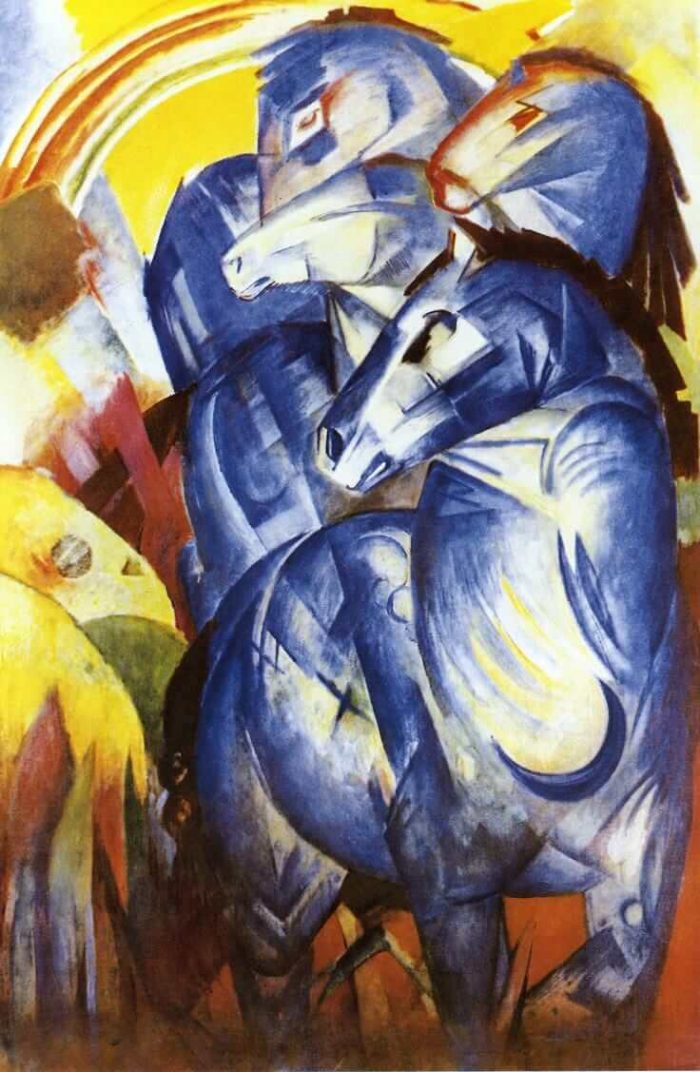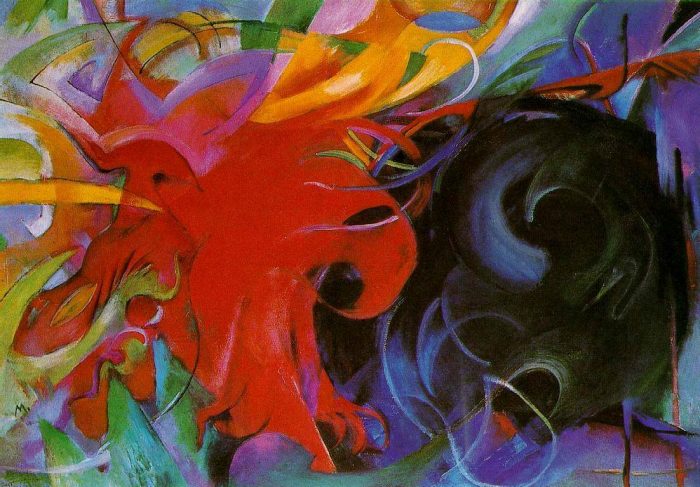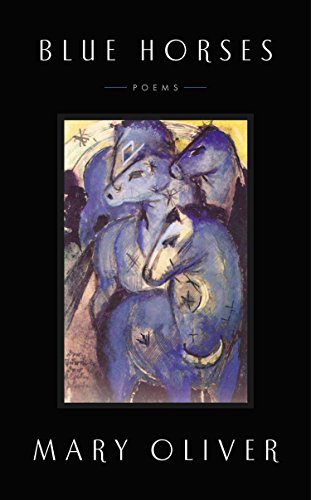If I walk out into the world in irritation or
self-centeredness, the birds scatter.
I would like people to remember of me, how
inexhaustible was her mindfulness.
The hurricane may find us or it will not, that
will always be the way.
With Shelley, I feel the visceral experience
of imagination.
Can you imagine anyone having a "casual" faith?
"This is what I know from years of being me," said
a friend.
You will always love me.
About God, how could he give up his secrets and
still be God?
If you think you see a face in the clouds, why not
send a greeting? It can't do any harm.
("A Little Ado About This And That", Mary Oliver, printed in Blue Horses, 2014)
Tag: Blue Horses
I'm living in a warm place now, where
you can purchase fresh blueberries all
year long. Labor free. From various
countries in South America. They're
as sweet as any, and compared with the
berries I used to pick in the fields
outside of Provincetown, they're
enormous. But berries are berries. They
don't speak any language I can't
understand. Neither do I find ticks or
small spiders crawling among them. So,
generally speaking, I'm very satisfied.
There are limits, however. What they
don't have is the field. The field they
belonged to and through the years I
began to feel I belonged to. Well,
there's life, and then there's later.
Maybe it's myself that I miss. The
field, and the sparrow singing at the
edge of the woods. And the doe that one
morning came upon me unaware, all
tense and gorgeous. She stamped her hoof
as you would to any intruder. Then gave
me a long look, as if to say, Okay, you
stay in your patch, I'll stay in mine.
Which is what we did. Try packing that
up, South America.
("Blueberries", Mary Oliver, printed in Blue Horses, 2014)
Why the wasp was on my bed I didn't
know. Why I was in bed I did know. Why
there wasn't room for both of us I
didn't know. I watched it idly. Idleness
can be a form of dying, I did know that.
The wasp didn't communicate how it felt.
It did look confused on the white sheet,
as though it had landed somewhere in the
Arctic. And it did flick its wings when
I raised my legs, causing an upheaval.
I didn't want to be lying there. I didn't
want to be going in that direction. And
so I say it was a gift when it rose into
the air and, as wasps do, expressed itself
in a sudden and well-aimed motion.
Almost delicious was its deep, inflexible
sting.
("The Wasp", Mary Oliver, printed in Blue Horses, 2014)
1.
"Hello, wren" is the first thing I say. "Where did you come from appearing so sudden and cheerful in the privet? Which, by the way, has decided to decorate itself in so many white blossoms."
2.
Paulus is coming to visit! Paulus the dancer, the potter. Who is just beginning his eightieth decade, who walks without shoes in the woods because his feet, he says, ask to be in touch with the earth. Paulus who when he says my poems sometimes changes them a little, according to the occasion or his own feelings. Okay, I say.
3.
Stay young, always, in the theater of your mind.
4.
Bless the notebook that I always carry in my pocket. And the pen. Bless the words with which I try to say what I see, think, or feel. With gratitude for the grace of the earth. The expected and the exception, both. For all the hours I have been given to be in this world.
5.
The multiplicity of forms! The hummingbird, the fox, the raven, the sparrow hawk, the otter, the dragonfly, the water lily! And on and on. It must be a great disappointment to God if we are not dazzled at least ten times a day.
6.
Slowly the morning climbs toward the day. As for the poem, not this poem but any poem, do you feel its sting? Do you feel its hope, its entrance to a community? Do you feel its hand in your hand?
7.
But perhaps you're still sleeping. I could wake you with a touch or a kiss. But so could I shake the petals from the wild rose which blossoms so silently and perfectly, and I do not.
("Good Morning", Mary Oliver, in Blue Horses, 2014)
by the randomness
of the way
the rocks tumbled
ages ago
the water pours
it pours
it pours
ever along the slant
of downgrade
dashing its silver thumbs
against the rocks
or pausing to carve
a sudden curled space
where the flashing fish
splash or drowse
while the kingfisher overhead
rattles and stares
and so it continues for miles
this bolt of light,
its only industry
to descend
and to be beautiful
while it does so;
as for purpose
there is none,
it is simply
one of those gorgeous things
that was made
to do what it does perfectly
and to last,
as almost nothing does,
almost forever.
("Stebbin's Gulch", Mary Oliver, in Blue Horses, 2014)
The television has two instruments that control it.
I get confused.
The washer asks me, do you want regular or delicate?
Honestly, I just want clean.
Everything is like that.
I won't even mention cell phones.
I can turn on the light of the lamp beside my chair
where a book is waiting, but that's about it.
Oh yes, and I can strike a match and make a fire.
("What I Can Do", Mary Oliver, in Blue Horses, 2014)
Disclaimer: This is not an art blog. This is not a blog for or against any wars. This is not a politics blog.
If you haven’t read my post on Mary Oliver’s poem Franz Marc’s Blue Horses, please read that first. I was moved by Oliver’s words to the point that I had to see the blue horses of which she spoke. I found this website, FranzMarc.org, with Marc’s history and a gallery of his paintings. I began to look through his works – his horses and forest animals. But the work that moved me the most tonight is called Fighting Forms. In my opinion, it is not particularly beautiful. In fact, it’s not even the picture itself that has made such an impact on me tonight. It’s the emotions I felt looking at it. Here are Franz Marc’s Tower of Blue Horses (left)and Fighting Forms (right).


Franz Marc died March 4, 1916. He was 36. He was killed on a World War I battlefield. Franz spent his life painting the things he loved best: animals. But at the close of his life, especially after the war began, his paintings began to take less and less form. His animals were obscured by bold lines and colors, ’til there were no definable animals left in the works.
Can you see the despair in his last painting, Fighting Forms? Can you feel it? War robbed Franz Marc of love, art, and, eventually, life. When I look at Fighting Forms, I see chaos, fire, violence, hatred, and sorrow. I feel so sad for Franz Marc who would never return from the war. He would never paint animals again. He would never feel peace again. It makes me cry. It’s been a long time since a work of art moved me this deeply. No wonder Mary Oliver said, “I would rather die than try to explain to the blue horses what war is.” She also said:
“Maybe the desire to make something beautiful is the piece of God that is inside each of us.”
“Franz Marc’s Blue Horses”, Mary Oliver, in Blue Horses, 2016
Franz Marc’s is a sad story, but don’t let it end with Fighting Forms. Let it inspire you to keep making your art. Whether you write, draw, sing, play an instrument, keep doing it. Don’t let even war stop you. Marc painted in the middle of World War I. It changed the way he saw things, and the way he painted, but he still painted. Perhaps you will have the opportunity to come out of your war (literal or figurative) into peace. You will be able to use your experiences to make your art better. Today, you may only be able to paint forms, but tomorrow, you’ll be able paint horses again. I’m rooting for you.
I step into the painting of the four blue horses.
I am not even surprised that I can do this.
One of the horses walks toward me.
His blue nose noses me lightly. I put my arm
over his blue mane, not holding on, just
commingling.
He allows me my pleasure.
Franz Marc died a young man, shrapnel in his brain.
I would rather die than try to explain to the blue horses
what war is.
They would either faint in horror, or simply
find it impossible to believe.
I do not know how to thank you, Franz Marc.
Maybe our world will grow kinder eventually.
Maybe the desire to make something beautiful
is the piece of God that is inside each of us.
Now all four horses have come closer,
are bending their faces toward me
as if they have secrets to tell.
I don't expect them to speak, and they don't.
If being so beautiful isn't enough, what
could they possible say?
("Franz Marc's Blue Horses", Mary Oliver, in Blue Horses 2014)
This is Franz Marc’s Tower of Blue Horses. It is the picture on the cover of Mary Oliver’s book, Blue Horses, so I believe it is the work that she wrote the poem about. I retrieved the image from FranzMarc.org. I don’t know much about Franz Marc, but I think it would have made him happy to know Mary Oliver appreciated his work and wrote about it so that her readers could know about him too. How special, that she would pay such a great tribute to this artist who died so young in World War I.


This is my newest book of poems by Mary Oliver. It’s a small paperback volume with thirty-eight poems, but I’m sure it holds beauty and wisdom between it’s covers.
I studied two poems by Mary Oliver for one of my last college classes, Nature Writers. I fell in love with how she loved the natural world. Her works are inspiring. She writes about the beauty of nature and the majesty of the elements, but she never glosses over the ugliness. Love and sorrow, joy and rage, hard work and idleness all have value in Mary Oliver’s works. Her world is real, and her writings are about that real world.
I can’t wait to start reading Blue Horses and see the world through Mary Oliver’s eyes again. It’s been several months since I read anything she wrote. Here are some of the poem titles that intrigue me:
- “Rumi”
- “If I Wanted a Boat”
- “Good Morning“
- “The Wasp”
- “Watering the Stones”
- “Loneliness”
- “Do Stones Feel?”
- “What Gorgeous Thing”
You can’t read poetry like a novel. Each poem is a part of a whole, but they must be taken slowly and carefully. I’m not sure how long it will take me to finish Blue Horses, but as I find poems that I love, I’ll share them with you. Hopefully you will want to find one of Mary Oliver’s books and see for yourself the world as she saw it. Happy Reading!